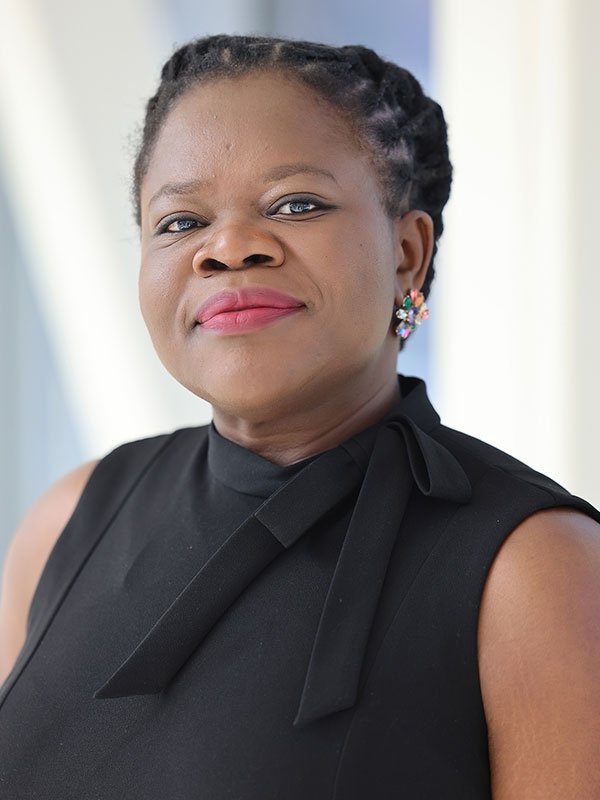Following her research premised on addressing health disparities among black men diagnosed with prostate cancer,
Motolani (Ogunsanya) Adedipe Ph.D has received a $1.3 million grant from the U.S. Department of Defense to test a newly created mobile app.
Motolani, a researcher in the TSET Health Promotion Center, a University of Oklahoma program at OU Health Stephenson Cancer Center, rationalized that the new app is designed specifically for the unique culture and experiences of Black men, which she said, showed significant potential for enhancing their long-term health and well-being.
She further stated that the app would guide men to evaluate their physical and mental symptoms, then offer tailored information based on their responses, such as suggestions for reducing pain or enhancing sleep.
“Men undergoing androgen deprivation therapy, a type of hormone treatment that often results in muscle mass loss, will be encouraged to engage in weightlifting and improve their nutrition. If users report high levels of pain, the app will connect them with an oncology nurse for pain management assistance or advise them to see a doctor.
Delving into key issues surrounding Prostrate cancer, the Oklahoma researcher said “the survivorship odds for prostate cancer in Black men are good: At the five-year point after treatment, 96% of men are alive, compared to 98% for white men. But Black men face a difficult transition from diagnosis to survivorship.”
“I remember having a conversation with a woman whose husband was successfully treated for prostate cancer. She said, ‘He survived the cancer, but he doesn’t feel like he’s surviving. He feels like he would have been better off dead.’
“We can talk about survivorship, but what does quality of life mean for those who are still here? There are unmet needs, especially for Black men who are coping with long-term complications,” Adedipe said.
In her research, which formed the basis for developing the app, Allnaijadiaspora.com gathered that Adedipe interviewed three groups of Black men in the United States who had been treated for prostate cancer: those born in Africa, those born in the Caribbean, and those born in the United States. She selected these ethnic groups because immigration from Africa and the Caribbean has significantly changed the demographics of Black communities in recent decades. Each group had varied experiences with cancer and the health care system, shaped by factors such as culture, location, and prior interactions with health care providers.
Adedipe further stated: “Imagine immigrant men who have moved to this country, trying to put food on the table and navigating immigration pathways, then life throws a cancer diagnosis at them,” Adedipe said. “It can be quite lonely. They want to talk about it but are hesitant because it’s deeply personal. It can be a threat to their masculinity and how they perceive themselves. We see a lot of dynamics at play.” Adedipe’s app is designed to support men through this unfamiliar territory.
Allnaijadiaspora.com learnt that the app has been tested in an initial pilot study, with favorable results, and the new Department of Defense funding will allow Adedipe to create a larger clinical trial.
Participants will be Black men from the three ethnic groups who have been diagnosed with prostate cancer. Most will be navigating post-care issues; half will use the app, while a control group will not. Because many people have smartphones, an app is an ideal vehicle for providing easy-to-digest information to an ethnically diverse group of Black prostate cancer survivors.
Adedipe stressed that “Our main objective is to test the effectiveness of this app on quality of life,” Adedipe said. “Our hypothesis is that it will be effective, not because the app is magical, but because we’re assessing symptoms, providing psychological and social support, and tailoring information to their needs.”
She concluded: “One of our biggest accomplishments has been opening up and talking about what we’re going through, as well as welcoming others to join us,” he said. “We talk about what might be considered taboo topics. It helps you know that you are not alone in your struggles. We’ve also talked about how the mental health component of a cancer diagnosis is often overlooked. We have come to the conclusion that when you select an oncologist or surgeon, you also need to consider a mental health professional to help you overcome some of the stigma and natural reactions that come with cancer.
“We want to bring that message to younger generations of men as well,” Cole said. “Not waiting until they are affected by cancer, but doing some education so that, if they find themselves on this route, they have choices, and here are some ways to make the best choices possible.”
Motolani (Ogunsanya) Adedipe, D.Ph., Ph.D., is a researcher in the TSET Health Promotion Center, a University of Oklahoma program at OU Health Stephenson Cancer Center.
She is also an assistant professor in the OU College of Pharmacy and leads the college’s Multidisciplinary Health Outcomes Research and Economics Lab.



